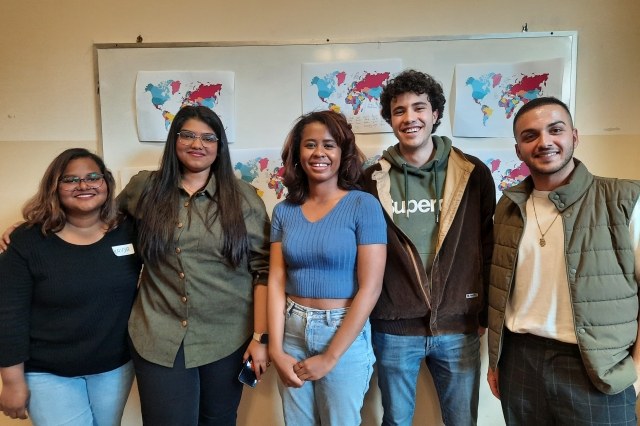In the large community of the University of Bologna, there are 140 different nationalities, and the languages spoken are even more. On 3rd May, this precious wealth was explored by Italian and international students and Student Ambassadors of the University of Bologna. The event – with the title "Speak Your (Multilingual) Mind!" - was an opportunity to discover the fascinating world of multilingualism, to share experiences, and to try to understand the cognitive mechanisms that develop in the minds of those who can speak several languages.
An itinerary made possible by the activities organised by Mariachiara Russo, the Rector's Delegate for Multilingualism, and Chiara Gianollo, professor in Linguistics at the Department of Classical Philology and Italian Studies, together with Licia Masoni and Francesca La Morgia, professors at the “Giovanni Maria Bertin” Department of Education Studies.
Starting with the different languages known by participants, the respective language families were reconstructed: a way of emphasising how different languages can also be a cultural vehicle. The linguistic and cognitive mechanisms that are activated in people who speak more than one language in their daily lives were then explored in depth.
With the help of a quiz, students explored the origin of commonly used words and then worked together to discover how different languages express common concepts, such as “mother”, “hand” and “butterfly”. This led to the creation of a map with different translations that brought to light the similarities between different languages.
To encourage the mutual exchange of knowledge and emphasise the importance of dialogue and discussion, a group challenge was also set up with the aim of guessing the meaning of words in different languages. Finally, a psycholinguistic test was used to reflect on some of the cognitive advantages highlighted by research on multilingualism.
The event allowed international students to get to know each other, discuss the topics of the meeting, and thus strengthen the sense of community within the University: it is no coincidence that the international dimension has always been part of the University's richness and is one of the goals of the University's 2022-2027 Strategic Plan.

